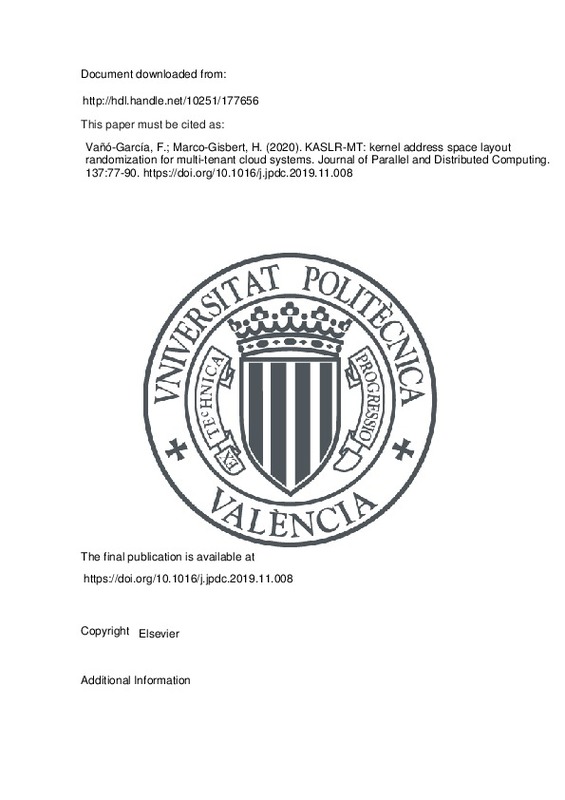JavaScript is disabled for your browser. Some features of this site may not work without it.
Buscar en RiuNet
Listar
Mi cuenta
Estadísticas
Ayuda RiuNet
Admin. UPV
KASLR-MT: kernel address space layout randomization for multi-tenant cloud systems
Mostrar el registro completo del ítem
Vañó-García, F.; Marco-Gisbert, H. (2020). KASLR-MT: kernel address space layout randomization for multi-tenant cloud systems. Journal of Parallel and Distributed Computing. 137:77-90. https://doi.org/10.1016/j.jpdc.2019.11.008
Por favor, use este identificador para citar o enlazar este ítem: http://hdl.handle.net/10251/177656
Ficheros en el ítem
Metadatos del ítem
| Título: | KASLR-MT: kernel address space layout randomization for multi-tenant cloud systems | |
| Autor: | Vañó-García, Fernando | |
| Entidad UPV: |
|
|
| Fecha difusión: |
|
|
| Resumen: |
[EN] Cloud computing has completely changed our lives. This technology dramatically impacted on how we play, work and live. It has been widely adopted in many sectors mainly because it reduces the cost of performing tasks ...[+]
|
|
| Palabras clave: |
|
|
| Derechos de uso: | Reconocimiento - No comercial - Sin obra derivada (by-nc-nd) | |
| Fuente: |
|
|
| DOI: |
|
|
| Editorial: |
|
|
| Versión del editor: | https://doi.org/10.1016/j.jpdc.2019.11.008 | |
| Tipo: |
|







![[Cerrado]](/themes/UPV/images/candado.png)


